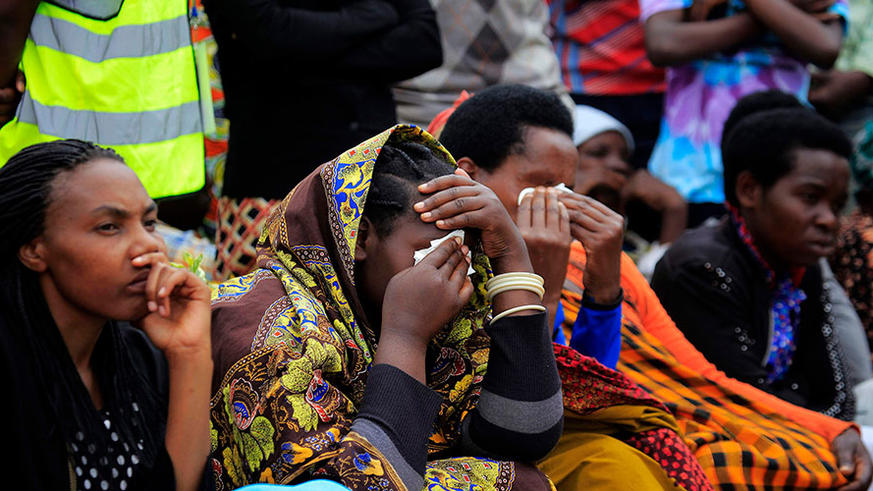
Kwibuka27: Call for help to survivors as country gears up for commemoration amidst Covid
By Nasra Bishumba, The New Times
Two weeks before the world commemorates the 1994 Genocide against the Tutsi for the 27th time, survivor organisations say that they have already started treating psycho-trauma cases, The New Times can reveal.
The Healing Activities Coordinator at Rwandan Graduate Genocide Survivors Organisation (GAERG), Aimée-Josiane Umulisa, says that adjusting to the fact that public gatherings for commemoration may be discouraged for the second year due to Covid-19 is affecting the survivors.
“Restrictions that are in place to protect Rwandans from contracting the virus have left some of the survivors lonely and heightened their fear and anxiety. They can’t convene to collectively remember their loved ones and it takes a toll on their mental health,” she said.
She said that they have already started talking to the survivors on the reasons why commemoration this year will also happen on a smaller scale, with most people encouraged to stay indoors, for them to fully comprehend that their loved ones have not been forgotten.
So far, she said, consultation with patients will continue to be done on the phone with the help of 200 community-based counsellors and 20 psychologists.
GAERG works with about 2,500 people who are split into 168 groups spread all over 25 districts countrywide.
She explains that the members of these groups are of advanced age (above 55) and face different mental health challenges including depression, PSTD, alcoholism and anxiety among others.
70 per cent of the 2,500 are battling both PTSD and depression.
Helplines availed
In a telephone interview with The New Times, the Executive Director of Survivors Fund Rwanda (SURF), Samuel Munderere said that uncertainty and instability surrounding the outbreak of Covid-19 has worsened the well-being and contributed to new mental health problems among the survivor community.
He pointed out that preparations for mental health challenge spikes were underway in collaboration with other stakeholders including AVEGA, Ibuka, AERG, and GAERG.
“Like last year, we will provide mental health support online. We have put in place four helplines, four counsellors and 48 peer support counsellors. The lines will be open 24/7 for a period of 16 months from April this year to July next year,” he said.
The Executive Secretary of IBUKA, the Umbrella Organisation of genocide survivors, Naphtal Ahishakiye said in an interview that financial constraints continue to be a challenge when dealing with mental health issues on the grassroots level.
“Almost everything right now is being done on phone, which means that we are basically telling these people to volunteer and use their resources to make these calls, to check in on the patients because we don’t give them facilitation,” he said.
He said that because of this, the survivors are all not being reached.
In 2019, Ibuka had 3,656 people who had mental health challenges during the commemoration period. Of these, about 3,087 were given immediate onsite support while 569 serious cases were transferred to hospitals.
In 2020 after the pandemic hit, about 1200 were affected and 401 were transferred to hospitals.
